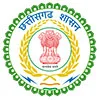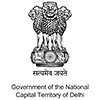
Payroll Outsourcing In India
Simplified Payroll SolutionsOutsource your monthly payroll processing and labour law compliance to Setindiabiz. We offer a hassle-free process for running monthly payroll, TDS Calculation, and filing all labour law returns such as PF, ESIC, PT, and LWF. Call us today.
Setindiabiz is Trusted By Leading Brands

































Outsource Payroll Process to Setindiabiz
We offer a comprehensive payroll service to businesses of all sizes and take care of every aspect of it, including filing returns under labour laws such as Provident Fund (PF), Employee State Insurance (ESI), Professional Tax (PT), and Labour Welfare Fund (LWF). By outsourcing the payroll and labour law return filing to us, you save substantial time that allows the management to pursue other important tasks instead of getting into the nitty-gritty of the labour laws. Our labour law experts have over two decades of experience dealing with labour law matters and, therefore, shall ensure that you no longer pay penalties.
What is covered in Payroll Outsourcing
- Payroll Processing
- TDS Calculation
- Employee TDS Return
- Issuance of Form 16
- Employee Onboarding
- PF UAN Allotment
- PF ECR Return Filing
- Employee PF Transfer
- ESIC Number Allotment
- ESIC Return Filing
- Professional Tax Returns
- Labour Welfare Fund
Pricing
What's Included :
- Payroll & Labour Law
- Income Tax Declaration (Form 12BB)
- Monthly Payroll Processing
- Payslip For Employees
- Full & Final Settlement (FNF)
- Quarterly TDS Return (Form 24Q)
Addons Available :
- Employee Portal
- Mobile App
What's Included :
- Onboarding & Exit Process
- UAN Number Allotment
- ESIC Number Allotment
- PF Return Filing (ECR Upload)
- Continuous Trademark PF Challan Payment Support
- ESIC Return Filing
- PTRC Return Filing (if applicable)
- Labour Welfare Fund Return
What's Included :
- All from Payroll & Labour Law Pack +
- EPFO DSC Registration
- EPFO Form 2 (Nomination)
- EPFO Form 5A Updation
- EPFO Inspection File for FY
- ESIC Inspection File for FY
- ESIC Half Yearly Return
- Employee Exit Process (F&F)
Employee TDS Calculation
Employee TDS (Tax Deducted at Source) calculation is a statutory obligation for employers under the Income Tax Act of 1961. Employers are required to deduct TDS from employees' salaries at applicable income tax rates and deposit it with the government within the prescribed timeline of seven days after the end of the month. The TDS deducted from the employee's salary can be deposited online and offline using TDS Challan 281. The TDS is computed based on the employee's income, deductions, exemptions, and the tax slab applicable for the financial year.
How to Compute TDS Liability of the Employee : To compute an employee's TDS liability, start by calculating their total taxable income. This includes the gross salary, allowances, and any other income reported by the employee, reduced by eligible exemptions such as House Rent Allowance (HRA) and deductions under Chapter VI-A (e.g., Section 80C for investments, Section 80D for health insurance premiums). Once the taxable income is determined, the applicable income tax slab is used to calculate the tax liability. From this, subtract any tax-saving investments or reliefs under sections like 87A. Finally, divide the total tax liability by the number of months in the financial year to determine the monthly TDS amount to be deducted from the employee's salary.
| TDS Payment & Return Due Date | Due Date of Issue of Form 16/16A |
|---|---|
|
|
Employer Obligations for Employee TDS
1
Accurate TDS Calculation
Employers must calculate TDS on employees' salaries accurately, considering all applicable exemptions, deductions, and prevailing income tax rates. The TDS calculation must be done every month due to changes in factors such as salary revision, incentive or bonus, changes in the investments made by the employees, etc, in case the employee has opted for the old tax regime.
2
Timely Deduction & Deposit
TDS must be deducted from employees' monthly salaries and deposited with the government by the 7th of the month. Ensuring timely deposit of the government dues is the duty and obligation of the employer. The delay in TDS payment would attract interest, penalty and, in some cases, prosecution by the TDS Department.
3
Submission of TDS Returns
Employers must file quarterly TDS returns (Form 24Q) providing details of TDS deductions, deposits, and employee-wise tax information. Filing a TDS Return is essential for crediting the employees with the tax deducted from their salary.
4
Issuance of Form 16
Employers must issue Form 16 to employees by June 15 of the subsequent financial year. It serves as proof of TDS deducted and includes salary details, tax computation, and deductions.
5
Compliance with Penalty Provisions
Employers must ensure compliance with statutory obligations to avoid penalties, interest, or legal consequences for non-compliance with TDS regulations under the Income Tax Act.
Labour Law Return Filing Service
Labour law return filing is a statutory obligation under applicable provisions of the Provident Fund & Miscellaneous Provisions Act 1952, Employee State Insurance Act 1948, and Professional Tax as may be appropriate in your state. Periodical returns are mandatory and usually filed monthly, whereas certain returns are half-yearly and annual. Setindiabiz helps you to remain compliant and file accurate and timely statements and returns under various labour laws. Our payroll and labour law return filing packages include processing payroll, TDS compliance and labour law returns. Why Choose Setindiabiz for Labour Law Compliance
- Comprehensive Service Coverage
- End-to-End Compliance Support
- Expertise in Regional Compliance
- Experienced Professionals
- Customisable Packages
- Expertise in all significant labour laws
- Register & Records for PF, ESI
- Timely Reminders and Alerts
- Technology-Driven Solutions
- Peace of Mind Assured
Provident Fund Compliance Services
Provident Fund (PF) is a social security legislation where the employer and employee equally contribute towards a fund managed by the EPFO under the Employees’ Provident Funds & Miscellaneous Provisions Act, 1952, which promotes saving and ensures pension in applicable cases after superannuation of the employee. The PF coverage is mandatory when the number of employees exceeds eighteen. The PF coverage can be extended to the employees voluntarily with the consent of the employer and the majority of employees if the number of employees is less than twenty. We offer our services for registration of establishment and to file ongoing returns under the EPFO and compliance.
Provident Fund Compliance Services by Setindiabiz
- PF Registration for Employers
- Monthly PF Contribution Filing
- Generation and Submission of ECR
- KYC Update for Employees in EPFO Portal
- Form 5A Submission (Return of Ownership)
- Annual Return Filing under the PF Act
- Maintenance of PF Registers and Records
- Support in EPFO Audits and Queries
ESIC Compliance Introduction
Employee State Insurance Corporation (ESIC) compliance is a statutory requirement under the Employees’ State Insurance Act, 1948, designed to provide social security and health benefits to employees in case of sickness, injury, maternity, or employment-related contingencies. Employers are under obligation to obtain ESIC Registration once the number of employees reaches 10 or more. The employer is further required to file monthly contributions concerning employees drawing less than 21000 gross salary. Proper ESIC compliance helps protect both employers and employees while avoiding penalties and legal complications.
ESIC Compliance Services by Setindiabiz
- ESIC Registration for Employers
- Monthly Contribution Filing
- Generation and Submission of Challans
- Employee Registration on ESIC Portal
- Half-Yearly Return Filing (Form 6)
- Maintenance of ESIC Records and Registers
- Handling ESIC Inspections and Audits
- Advisory on Latest Updates in ESIC Laws
Professional Tax Compliance Introduction
The state government levies Professional Tax (PT). However, the professional tax can not exceed INR 2500 for a year as mandated by the Constitution (Sixtieth Amendment) Act, 1988. that introduced Article 276(2) into the Indian Constitution, which empowers state governments to levy professional tax while capping the maximum amount at ₹2,500 per individual per year; the amendment ensures that professional tax does not become an excessive financial burden on individuals.
List of states that have levied professional tax
 Andhra Pradesh
Andhra Pradesh Madhya Pradesh
Madhya Pradesh Puducherry
Puducherry Assam
Assam Maharashtra
Maharashtra Sikkim
Sikkim Bihar
Bihar Manipur
Manipur Tamil Nadu
Tamil Nadu Chhattisgarh
Chhattisgarh Meghalaya
Meghalaya Telangana
Telangana Gujarat
Gujarat Mizoram
Mizoram Tripura
Tripura Jharkhand
Jharkhand Nagaland
Nagaland West Bengal
West Bengal Karnataka
Karnataka Odisha
Odisha Kerala
Kerala Punjab
Punjab
Setindiabiz provides end-to-end compliance services regarding professional taxes, including assistance in obtaining Professional Tax Registration as an Employer (also known as PTRC) and enrollment as a taxable entity (also known as PTEC). We also extend our services for monthly return filing under the PTRC and PTEC.
The Labour Welfare Fund (LWF)
The Labour Welfare Fund (LWF) is governed by respective state-specific Labour Welfare Fund Acts and through the Labour Welfare Board and promotes employee welfare, such as housing, education, medical care, and recreational facilities. Employers covered under the Act must deduct LWF contributions from employees' salaries (where applicable) and make matching contributions. These contributions must be deposited with the respective Labour Welfare Board per the prescribed schedule.
List of states that levy Labour Welfare Fund (LWF)
 Andhra Pradesh
Andhra Pradesh Kerala
Kerala Tamil Nadu
Tamil Nadu Telangana
Telangana Madhya Pradesh
Madhya Pradesh Uttar Pradesh
Uttar Pradesh Delhi
Delhi Maharashtra
Maharashtra West Bengal
West Bengal Gujarat
Gujarat Punjab
Punjab Assam
Assam Haryana
Haryana Rajasthan
Rajasthan Goa
Goa Karnataka
Karnataka
Setindiabiz helps organisations register under the LWF, pay the LWF contribution, and file the Labour Welfare Returns. Non-compliance can result in penalties, making it crucial for employers to adhere to these obligations diligently.